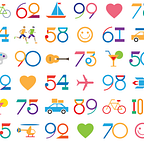Heidemarie Schwermer, Who Doesn’t Need Money
Heidemarie Schwermer is 70. For the last 17 years, she’s been living without money, on principle: she never uses it, under any circumstances. She is happy and is in great health! How does she do it?
One morning, Heidemarie Schwermer called her landlord and gleefully announced that she would no longer be paying rent for her apartment. Having given up her flat (and despite having nowhere else to live), Schwermer gave away nearly all of her belongings and furniture to her neighbors, leaving only one suitcase filled with the essentials for herself. Inside the empty apartment, Heidemarie Schwermer began to jump around and dance out of happiness.
The logical conclusion to draw would have been that she had gone crazy. But, it wasn’t so! Heidemarie had decided to stage an experiment: to live without money or material possessions (except for a few daily essentials) for one year. On the day the experiment commenced, Heidemarie Schwermer was 53.
“People are too involved with the material world — money, possessions…” she says. “They spend tons of time and energy on it. And they aren’t aware of how little money actually provides for them! I wanted to prove that another lifestyle is possible.”
After all her things were given away, Heidemarie just had one little thing left to do: learn to live without money. First, she needed to find housing. The plan was: live with friends in exchange for giving them free therapy sessions (Schwermer is a psychotherapist). But, she soon learned that there weren’t too many people who wanted to have a live-in therapist. She had to find a new approach.
Heidemarie began washing windows in private homes in exchange for room and board. This worked. Her services gained popularity and Schwermer learned to meet her essential needs with the aid of manual labor. It was enough to just offer people the services they most needed. Depending on the household, Heidemarie Schwermer helped out in the garden, babysat, cleaned the house. In order to get a haircut, she would walk the hairdresser’s dogs. She had to walk a lot in general, using transportation only when a friend would offer her a lift.
“Of course, it wasn’t easy at first,” says Schwermer. “But the freedom I felt was worth it.”
The experiment turned out much more successful than was expected. Not only did the initial year pass, but it’s now been 17 years since Heidemarie started living without money. This lifestyle brings her immense pleasure.
She doesn’t have a house. All of her possessions fit into one suitcase: a change of clothes, three pairs of shoes, one book, a little makeup and glasses. She doesn’t shop. She uses the Internet and phone when staying with friends (first making sure they have unlimited service rates).
At the beginning of the experiment, Heidemarie had set up an emergency fund. She set aside 200 euros just in case she ever really needed money. In 17 years, she has never once touched it.
“In the modern world, the necessity to continually accumulate possessions, which one then drags with them through life is becoming a thing of the past,” Schwermer is convinced.
Her ideas are not unfounded. This kind of lifestyle is becoming more and more popular. A few years ago, some journalists became interested in Schwermer’s experiment and shared her story on the radio. Soon, Heidemarie received invitations to appear on television and to speak at universities in various cities. Now, she is not only living without money, but also traveling often (and completely for free). Event organizers send her plane or train tickets, set up places for her to stay. They don’t take her out to eat, however — Heidemarie doesn’t like to go to restaurants and prefers to eat elsewhere.
Schwermer has stopped washing windows long ago. Now, her main activities are giving consultations and lectures on living without money. As payment for her services, she accepts room and board.
“The world is set up in such a way that it is possible to get everything you need without having money,” Heidemarie is sure. Her 17-year experiment completely backs up her conclusion.
A few years ago, Heidemarie began receiving a pension.
“At first, I wanted to give it up,” she says, “but then I changed my mind.”
Heidemarie diligently accepts her pension and immediately gives it away to those who are still relying on money.
Heidemarie Schwermer says:
It’s believed that money is the key that opens all doors. I am now convinced that love and trust can also be used as that key.
